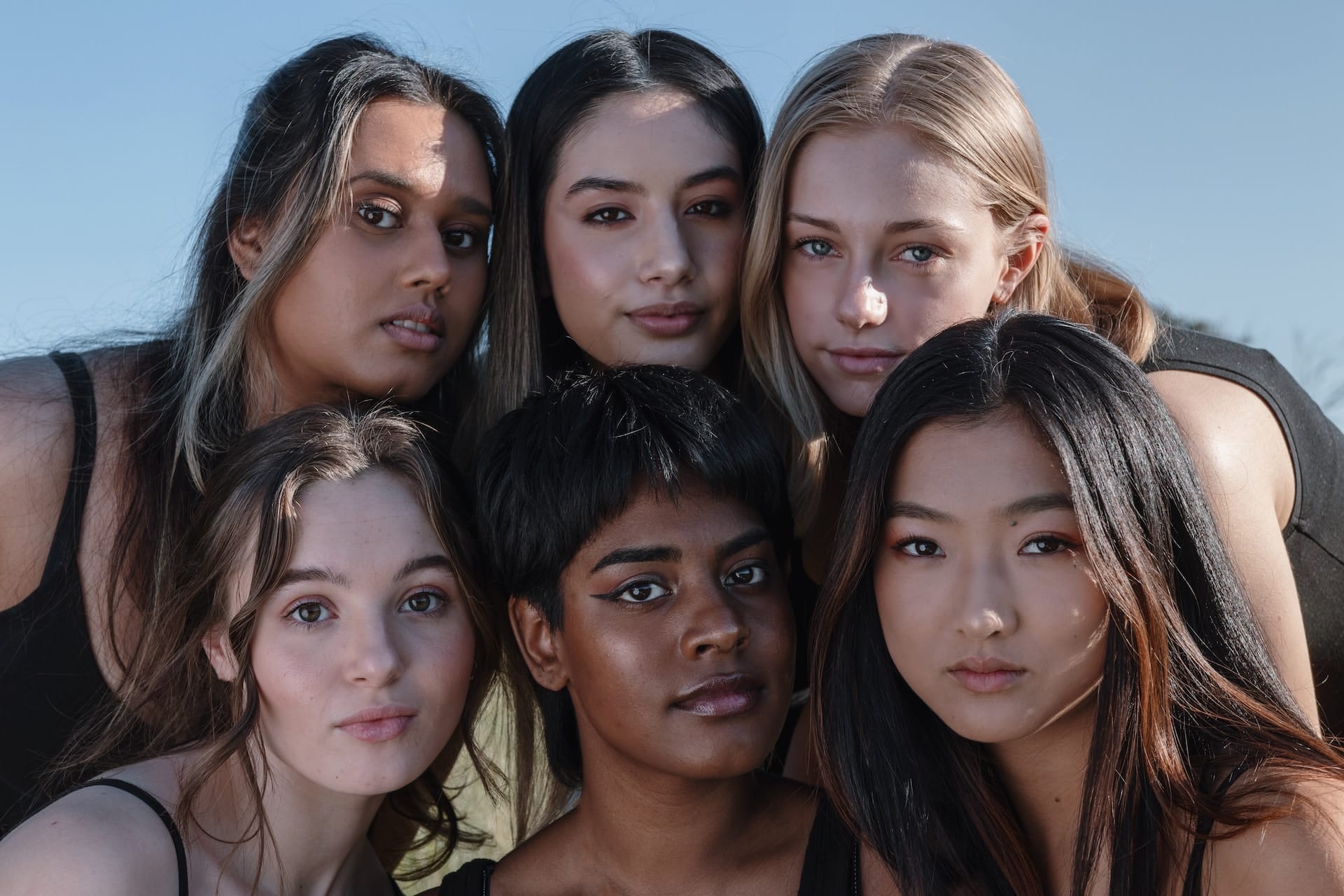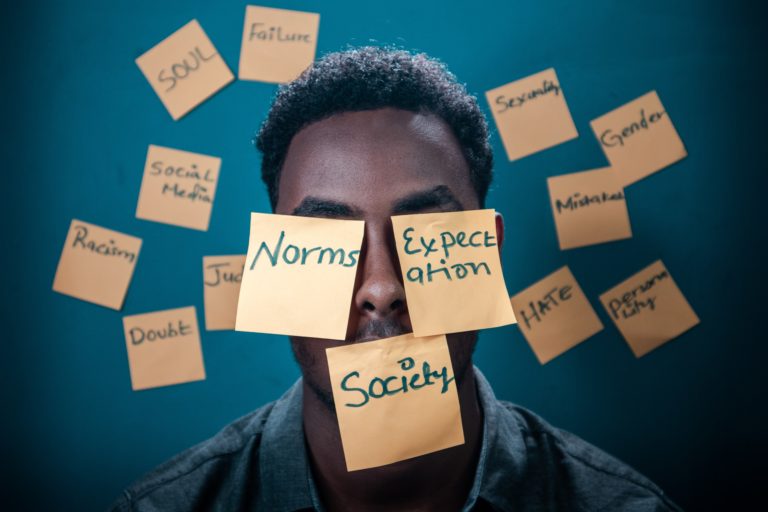In the dynamic and ever-evolving field of mental health, the recognition of cultural competence in counseling has risen to the forefront as an indispensable element for fostering inclusivity and cultivating effective therapeutic relationships. As the fabric of our societies becomes increasingly diverse and interconnected, mental health professionals are faced with the imperative to not only acknowledge but embrace the profound impact of cultural nuances on individuals’ well-being. This article embarks on a comprehensive exploration into the multifaceted significance of cultural competence in counseling, delving deep into its transformative potential. By providing nuanced insights into understanding diverse perspectives, the aim is to arm mental health professionals with the essential tools necessary to skillfully navigate the intricacies within the rich tapestry of human experiences.
Embracing Cultural Competence in Counseling

Cultural competence in counseling is a multifaceted concept that encompasses a counselor’s ability to engage effectively with clients from diverse cultural backgrounds. It involves not only recognizing the surface-level markers of diversity, such as culture, race, ethnicity, gender, and religion but delving deeper into the intricate web of factors that shape an individual’s identity and mental health. Cultural competence is more than a set of skills; it is a mindset and an ongoing commitment to understanding and respecting the uniqueness of each client.
Cultural competence extends beyond the confines of a counselor’s office; it influences the entire therapeutic process. It involves acknowledging the historical, social, and systemic forces that have shaped a client’s worldview. A culturally competent counselor recognizes that individuals are not defined solely by their cultural identity but are influenced by a complex interplay of various factors, including family dynamics, socioeconomic status, and personal experiences.
The Importance of Understanding Diverse Perspectives

At the heart of cultural competence lies the profound significance of understanding diverse perspectives. This goes beyond a superficial awareness of differences; it necessitates a genuine curiosity and openness to grasping the world through the unique lenses of each individual. Recognizing that every person’s narrative is shaped by their cultural background, life experiences, and values is essential for fostering a therapeutic alliance built on trust and mutual understanding.
Understanding diverse perspectives is not a one-size-fits-all approach but a dynamic process of active listening, empathy, and cultural humility. It involves acknowledging the richness of cultural diversity and the myriad ways in which it influences thoughts, behaviors, and emotions. By actively seeking to comprehend the unique context in which a client’s reality is constructed, counselors can tailor their interventions to align with the client’s cultural context, thereby enhancing the efficacy of the therapeutic relationship.
This understanding forms the foundation for culturally responsive counseling approaches. It empowers counselors to adapt their communication styles, therapeutic techniques, and treatment plans to align with the cultural preferences and values of their clients. Tailoring interventions in this manner not only respects the client’s cultural context but also increases the likelihood of positive therapeutic outcomes.
Key Components of Cultural Competence in Counseling
Cultural Awareness

Cultivating cultural awareness is a multifaceted process that requires counselors to engage in deep self-reflection and examination of their own biases, values, and assumptions. This introspective journey is foundational for developing a heightened sensitivity to the diverse cultural backgrounds of clients. Cultural awareness extends beyond a mere acknowledgment of surface-level differences; it involves a genuine commitment to understanding how one’s own cultural background and beliefs may impact the counseling relationship.
Counselors must actively confront and question their implicit biases, recognizing that everyone carries biases shaped by their upbringing, societal influences, and personal experiences. By acknowledging and addressing these biases, counselors can create a space that is open-minded, non-judgmental, and conducive to fostering trust with clients from diverse backgrounds. Cultural awareness is not a one-time achievement but an ongoing process that requires a commitment to continuous self-reflection and learning.
Sensitivity to Individual Differences

Recognizing and appreciating individual differences within a cultural or ethnic group is an essential aspect of cultural competence. While cultural background provides a broader context, each person is a unique blend of experiences, values, and perspectives. A culturally competent counselor understands that no two individuals, even from the same cultural group, will have identical experiences or worldviews.
Sensitivity to individual differences involves acknowledging the complexity of identity formation and avoiding stereotyping or making assumptions based on cultural affiliations. It requires a personalized and nuanced approach to counseling, where treatment plans are tailored to the specific needs, preferences, and strengths of each client. By embracing diversity within cultural groups, counselors can create an environment that celebrates individuality and promotes a sense of belonging for every client.
Effective Cross-Cultural Communication in Counseling

Communication is the cornerstone of effective counseling, and cultural competence in counseling demands honing the skills to communicate across cultural boundaries. This involves not only linguistic proficiency but also an understanding of the cultural nuances that shape verbal and non-verbal communication. Culturally competent counselors actively work to bridge potential communication gaps, ensuring that clients feel truly understood and heard.
Effective cross-cultural communication goes beyond language proficiency; it encompasses an awareness of non-verbal cues, body language, and cultural subtleties. Culturally competent counselors adapt their communication styles to align with the preferences of their clients, creating a space where individuals from diverse backgrounds feel respected and validated. This skill is pivotal for building a strong therapeutic alliance and fostering a sense of safety and comfort for clients who may be navigating the challenges of expressing themselves in a different cultural context.
In essence, the key components of cultural competence require counselors to engage in ongoing self-awareness, embrace individual differences, and master the art of communication across diverse cultural landscapes. These components collectively contribute to the creation of a culturally responsive and inclusive counseling environment, where clients receive personalized and effective mental health support.
Strategies for Enhancing Cultural Competence in Counseling

Continuous Education and Training
Staying culturally competent is an ongoing commitment that requires counselors to actively engage in continuous education and training. Workshops, seminars, and cultural sensitivity training programs offer valuable opportunities to expand one’s knowledge and acquire practical tools for navigating diverse perspectives. These educational initiatives delve into the intricacies of cultural competence, addressing evolving cultural landscapes and emerging issues.
Specialized Training Programs
Participating in specialized training programs focused on specific cultural groups or addressing intersectionality allows counselors to deepen their understanding of the unique challenges faced by individuals from various backgrounds. These programs often provide insights into culturally informed therapeutic interventions, ensuring that counselors are equipped with the latest knowledge to meet the diverse needs of their clients.
Cultural Competence Counseling Workshops
Interactive workshops facilitate experiential learning, encouraging counselors to explore their own cultural biases and practice culturally responsive communication techniques. These workshops may involve case studies, role-playing exercises, and discussions on cultural humility, fostering a dynamic and participatory learning environment.
Professional Development Courses
Engaging in professional development courses related to cultural competence enhances counselors’ theoretical knowledge and practical skills. These courses may cover topics such as cultural assessment tools, ethical considerations in cross-cultural counseling, and strategies for addressing cultural disparities in mental health care.
Building a Diverse Skill Set

Cultivating cultural competence involves not only theoretical knowledge but also the development of a diverse skill set that enables counselors to adapt their methods to suit the unique needs of clients from different cultural backgrounds. This versatility is a key factor in providing effective and inclusive support.
Integrating Cultural Competence into Counseling Approaches
Counselors can enhance their cultural competence by incorporating culturally informed elements into their therapeutic approaches. This may include integrating cultural metaphors, rituals, or narratives into counseling sessions, ensuring that interventions resonate with the cultural context of the client.
Language Proficiency and Communication Skills
Being proficient in languages relevant to the client population and honing effective cross-cultural communication skills are essential components of a diverse skill set. Counselors who can communicate with clients in their preferred language create a more accessible and comfortable therapeutic space.
Cultural Competence in Counseling Assessment and Diagnosis
Adapting assessment and diagnostic practices to be culturally sensitive is crucial. Counselors should be adept at recognizing cultural variations in symptom presentation, understanding cultural differences in help-seeking behaviors, and avoiding diagnostic bias.
Seeking Supervision and Consultation

Regular supervision and consultation with peers or mentors provide invaluable opportunities for counselors to receive guidance on culturally sensitive practices. These collaborative discussions allow counselors to reflect on their cases, seek input from others, and gain diverse perspectives that contribute to ongoing cultural competence development.
Case Consultation: Navigating Cultural Complexity
In the realm of case consultation for cultural competence, counselors engage in in-depth discussions about challenging cases within the context of cultural diversity. These sessions extend beyond routine supervision, allowing counselors to delve into the intricacies of culturally sensitive interventions. The aim is to explore alternative perspectives, share insights, and receive constructive feedback on how to enhance cultural responsiveness in their counseling practice.
Case consultation involves a nuanced examination of cultural formulation, where counselors critically assess how cultural factors intersect with mental health symptoms and treatment outcomes. By collaboratively analyzing complex cases through a cultural lens, counselors gain a deeper understanding of the unique challenges clients may face and refine their interventions accordingly.
Ethical considerations in cross-cultural counseling are a focal point during case consultations. Counselors critically examine their decision-making processes, ensuring that interventions respect cultural values, uphold clients’ autonomy, and address power differentials. This ethical reflection is essential for maintaining the integrity of the therapeutic relationship.
Tailoring Interventions

Case consultations provide a platform for counselors to share successful strategies for tailoring interventions to diverse cultural backgrounds. This includes exploring creative therapeutic techniques, integrating cultural rituals or metaphors, and adapting evidence-based practices to align with the unique needs of clients from various cultural contexts.
Peer Support and Collaboration: Cultivating a Community of Learning
Peer support groups form a cornerstone of cultural competence development, creating a community where counselors share their experiences, challenges, and success stories. These groups offer a space for open dialogue, allowing counselors to discuss culturally complex cases, seek advice, and collectively brainstorm effective approaches to enhance cultural sensitivity.
Peer support groups facilitate case sharing and reflective practice, where counselors recount experiences working with clients from diverse backgrounds. By sharing stories and engaging in reflective discussions, counselors gain insights into the diverse ways cultural factors impact therapeutic dynamics, fostering a deeper understanding of the complexities involved.
Peer collaboration extends to resource sharing, where counselors exchange culturally relevant materials, research findings, and recommended readings. This collaborative knowledge-sharing strengthens the collective expertise of the group, ensuring that counselors have access to a rich array of resources for ongoing learning.
Mentoring Relationships: Guiding the Path to Cultural Competence in Counseling
Mentoring relationships play a pivotal role in the professional development of counselors committed to cultural competence. Seasoned professionals in the field guide and support less experienced colleagues, offering personalized guidance and insights that contribute to the mentee’s journey toward cultural competence.
Mentors provide tailored guidance, addressing the specific cultural competence challenges faced by their mentees. This guidance may involve navigating cross-cultural communication hurdles, refining culturally sensitive assessment skills, or strategizing interventions for clients from diverse backgrounds.
Mentoring relationships create a platform for shared experiences, where mentors recount their own journeys in developing cultural competence. These narratives serve as a source of inspiration, offering valuable lessons and practical tips based on real-world encounters. The mentor’s experiences become a roadmap for the mentee’s professional growth.
Continuous Learning and Feedback
Mentoring is a continuous learning process, with mentees receiving regular feedback on their cultural competence development. This constructive feedback helps counselors refine their approach, address blind spots, and navigate the evolving landscape of cultural competence in counseling.
Overcoming Challenges: Navigating the Complex Terrain of Cultural Competence

Acknowledging Implicit Biases
Addressing cultural biases demands a courageous exploration of counselors’ implicit assumptions and preconceived notions. Counselors must confront the unconscious biases that may influence their perceptions, decisions, and interactions with clients. This introspective process involves acknowledging that everyone carries biases shaped by societal influences, upbringing, and personal experiences.
Continuous Self-Reflection
Overcoming cultural biases requires counselors to engage in continuous self-reflection. This involves an ongoing examination of their thoughts, feelings, and reactions in counseling sessions. By cultivating self-awareness, counselors can identify and challenge their biases, ensuring that these biases do not negatively impact the quality of care provided to clients.
Training in Implicit Bias Recognition
To address cultural biases effectively, counselors can undergo specialized training in implicit bias recognition. These training programs equip counselors with the knowledge and tools to identify and manage biases that may emerge during counseling interactions. Training may include case studies, role-playing exercises, and discussions on mitigating bias in decision-making.
Embracing Cultural Humility: A Lifelong Commitment to Learning in Counseling

Recognizing the Limits of Cultural Knowledge
Cultural humility goes beyond mere awareness of cultural differences; it involves recognizing the inherent limits of one’s own cultural knowledge. Counselors acknowledge that they cannot be experts in every culture and that each client brings a unique set of experiences and perspectives.
Openness to Learning from Clients
Embracing cultural humility requires counselors to approach each client with a genuine curiosity and openness to learning. Rather than assuming knowledge, counselors adopt a humble stance, recognizing that clients are the experts on their own cultures. This humility encourages counselors to ask questions, seek clarification, and create a collaborative space where clients feel empowered to share their cultural narratives.
Cultivating a Lifelong Commitment
Cultural humility is not a destination but a journey—a lifelong commitment to self-reflection and continuous learning. Counselors actively seek opportunities to expand their cultural knowledge, whether through reading, attending cultural events, or engaging in ongoing cultural competence training. This commitment ensures that counselors remain attuned to the evolving landscape of cultural diversity and are receptive to integrating new insights into their practice.
Intersectionality in Cultural Competence in Counseling

Recognizing Intersectional Identities
Addressing challenges in cultural competence in counseling requires an understanding of intersectionality—the interconnected nature of various social identities. Counselors must recognize that individuals hold multiple identities, and the intersection of these identities can impact mental health experiences. This awareness is crucial for providing nuanced and comprehensive support that considers the complex interplay of factors such as race, gender, sexual orientation, and socioeconomic status.
Tailoring Interventions to Intersectional Experiences
Counselors navigate challenges by tailoring interventions to address the intersectional experiences of clients. This involves recognizing the unique challenges faced by individuals with multiple marginalized identities and ensuring that counseling approaches are inclusive and sensitive to these complexities.
Ongoing Education on Intersectionality
To overcome challenges related to intersectionality, counselors engage in ongoing education specific to understanding the intersectional dimensions of cultural competence. This education includes staying informed about research on intersectionality, participating in relevant workshops, and seeking supervision that specifically addresses the nuances of supporting individuals with intersecting identities.
Conclusion
In conclusion, the journey toward cultural competence in counseling is multifaceted, dynamic, and essential. It involves a commitment to understanding, embracing diversity, and continuously refining one’s approach. As mental health professionals navigate this complex terrain, they contribute not only to the well-being of individual clients but also to the creation of a more inclusive and culturally responsive mental health landscape. By nurturing cultural competence, counselors play a vital role in ensuring that mental health support reflects the diversity and richness of the human experience.




